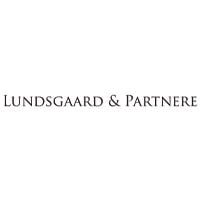

Deputy General Counsel | Maersk Group



Casper Munch
Deputy General Counsel | Maersk Group
Team size:250
How do you feel the pandemic has changed the world of work for in-house counsel and the function of the general counsel?
I do not think that the scope of the general counsel has changed due to the pandemic; however, it has accelerated some dynamics that were already taking place. Since the business environment is getting more complex and regulated, the legal function is increasingly intertwined with the organisation, playing a significant role in the business strategy. At Maersk, the complexity grew exponentially, with the pandemic causing numerous regulatory and logistical challenges. The legal team has joined the Maersk crisis management team, but the many facets of the pandemic resulted in many legal experts being called externally.
While remote work and video meetings have been possible for a long time, the pandemic has obviously pushed remote working to a new level and accelerated the general push towards digitisation. In Maersk, we have been able to close several M&A transactions despite not being able to meet the target companies or the sellers – let alone our teams – in person. Had you asked me two years ago, I would not have thought this was possible!
What will be the main focus for the company in the next 12 months and how do you intend to assist with this?
Maersk is on a transformational journey moving from focusing on ocean container shipping (container terminals and vessels) to an integrated logistics company offering highly digitised end-to-end solutions to our customers. Maersk has made several acquisitions to facilitate the process, which I expect will continue in the next 12 months.
Another critical area is decarbonisation — we have recently announced a 2040 net-zero emissions target. Maersk has already ordered 12 massive dual-fuel vessels capable of running on green fuels. Our legal team has been involved with corporate projects and M&A; however, the push for green fuels will trigger a need for new colleagues with legal expertise in local production and green fuels.
What do you feel are the pros and cons of an in-house legal role compared to a private practice one?
The main difference is how in-house lawyers understand and interface with internal clients compared to external counsel. While private practice may be intellectually challenging, allowing time to deep dive in-house, you can provide more business relevant and valuable advice. It creates a more exciting work environment, as you can play a more active role in decision-making.
In private practice, you are the business rather than a support function, which I miss at times (together with meeting room facilities and coffee, which is much better in private practice!)
Vice president, head of legal, deputy general counsel | A.P. Møller – Mærsk
Deputy general counsel, head of legal, VP | A.P. Møller – Mærsk